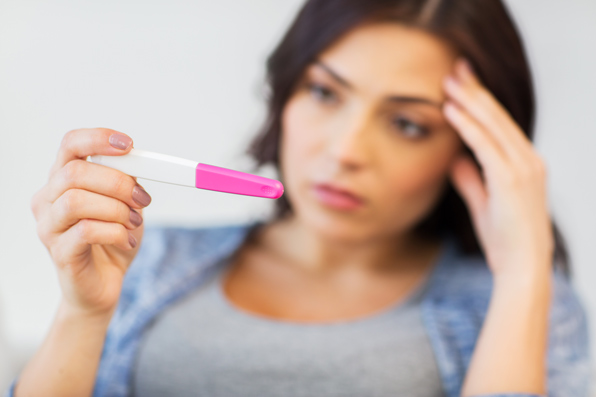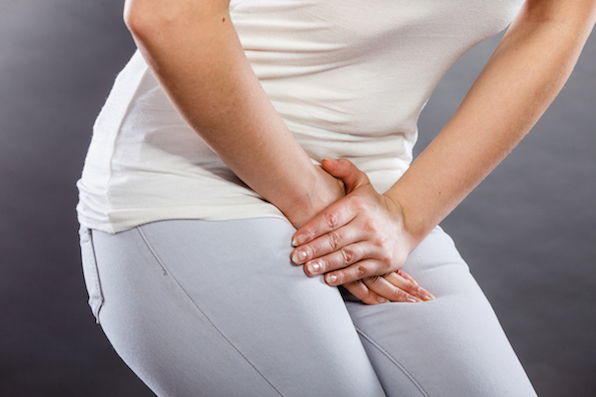It’s just as important to look after your vaginal health as it is to take care of the rest of your body – a happy vagina = happy self. Be good to your lady bits and they’ll be good to you!
Dr Albert Aka, Consultant Gynaecologist at The Gynae Centre provides 7 expert tips on how to keep your vagina happy and healthy.
1. Shower and change after the gym or swimming
The vulva has two types of sweat glands: Eccrine glands and apocrine glands. When you exercise, these naturally release sweat. This is completely normal, but the problem is that a warm, moist area like this is the perfect breeding ground for bacteria. By staying in your tight-fitting gym clothes or swimming gear, you’re giving bacteria a chance to grow, leaving you at risk of yeast infections, odour and chafing – and nobody wants that! You can reduce your chance of this by changing out of your swimwear or gym gear as soon as you are finished working out. Have a hot wash or shower to remove any bacteria and leave the area clean and dry.
2. Avoid using products inside the vagina
These days we hear many stories about women using all sorts of strange methods to clean their vagina – remember vaginal steaming? But the vagina is self cleaning and doesn’t require any cleaning or douching. In fact, these actions can upset the vagina’s pH balance and the delicate flora and fauna, in turn leading to yeast infections and other problems, which is usually what women using these methods want to avoid. When washing the vulva (the outer area), you only need to use mild, unscented soap – there is no need for specialist feminine washes.
Dr Aka says: “If you’re douching or cleaning inside the vagina because you’re worried about smell, it’s important to remember that the vagina does have a natural musky scent. If you’re concerned about the smell of your vagina, or it smells unpleasant, it could be due to an infection like bacterial vaginosis. In this instance you should visit your GP or gynaecologist for appropriate diagnosis and treatment.”
3. See your gynaecologist yearly for preventative care
As women age, the risk of certain diseases becomes more prevalent and a yearly check allows for preventative screening for the likes of cervical cancer, breast disease and pelvic disorders. This is important because many pelvic conditions do not display any symptoms. A yearly well woman check can give you peace of mind, ensure you’re in optimal health and can help to diagnose any issues as early as possible. Read more about our Well Woman Checks here.
4. Attend your smear test
Yes, it’s just as important as everyone says it is. Many women delay their smear tests because of fear of embarrassment but most of the women we see are surprised by how not embarrassing the experience eis and how quick it’s over with. Smear tests are so very important to picking up on cell changes that could one day turn into something more sinister, like cervical cancer. It’s a very reliable form of testing and could save your life. Our team is very experienced and does everything they can to make it a comfortable experience for you.
5. Wear cotton underwear
Some women find that they are sensitive to synthetic fibres which can cause irritation. Cotton is generally recommended for underwear as it is a natural product that doesn’t hold moisture, and has wicking and drying qualities. Underwear with later rubber or latex in should be avoided as moisture isn’t able to escape as easily, leaving a warm, moist environment, causing bacteria to multiply quickly. It’s especially important to wear breathable cotton underwear if you are suffering with any kind of vaginal problems like a yeast infection.
6. Follow good hygiene during that time of the month
It goes without saying that keeping good hygiene will keep your vagina happy but this is perhaps most important during your menstrual cycle.
Dr Aka says: “It’s important to change tampons and sanitary towels frequently (every 6-8hrs is recommended), even if you don’t feel like you need to. Although it can seem more cost effective to leave a tampon in for a long time, there are health implications linked to this, including toxic shock syndrome (TSS). This is rare but can be fatal.” TSS bacteria colonises in the vagina when a tampon is left for too long and this can lead to fever, skin changes, low blood pressure, vomiting and muscle aches. Tampons should be changed every 6-8hrs max hours and should only be used when you are bleeding.
7. Practice safe sex
STIs are more common that you may realise, with chlamydia accounting for 46.1% of all STIs diagnosed. Unfortunately, around 70% of women and 50% of men will not have any symptoms, and it can remain dormant for years, meaning you could have it, and be spreading it to sexual partners without knowing. A study from Public Health England showed that cases of gonorrhea rose by 26% between 2017 and 2018, all STIs rose by 5%. Nobody wants an STI, and the best way to avoid getting one is through practicing safe sex by using male condoms.
Dr Aka adds: “If you’ve sexually active then it’s advised you get sexual health screening a minimum of once a year, or, every time you change sexual partner. If you suspect you may have an STI – even if you don’t have any symptoms – you should make an appointment to see your gynaecologist or local sexual health clinic.”
If you would like to book a well woman check, sexual health check or would like to speak to Dr Aka about symptoms you are experiencing, please book online, email us at ask@gynae-centre.co.uk or call our friendly admin team directly on 020 7580 8090.






